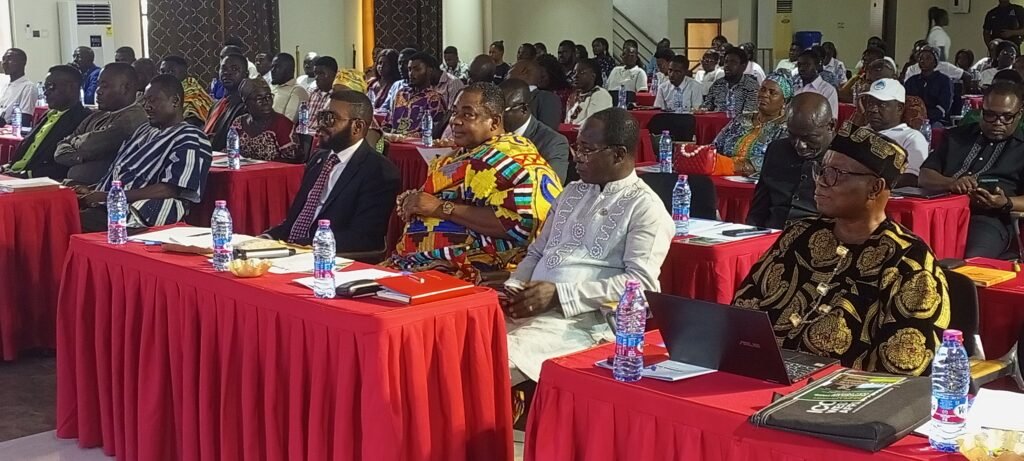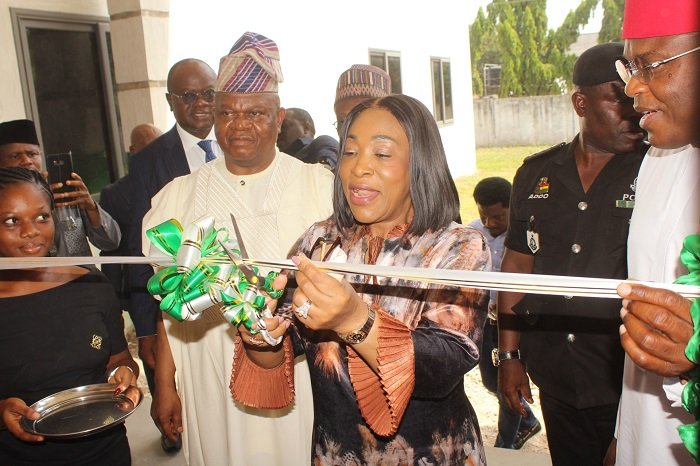ARTICLE AD
The Annual General Meeting of the Ghana Chamber of Construction Industry (GhCCI) opened in Takoradi on Thursday on the theme ‘Climate adaptation strategies in sustainable infrastructure development-the role of the construction sector players.’

In his address, the Chairman of GhCCI, Emmanuel Tetteh Martey, said the theme captured the need for the construction sector players to go beyond brick and mortar and adopt sustainable and innovative practices to offset climate change impacts.
Extreme weather conditions for example, he noted, threatened road infrastructure and buildings and suggested that situation demanded a change in project designs which were ecologically friendly, saying that, “ climate resilience is no longer an option but a necessity.”
Martey said “the role of the construction industry cannot be under stated. We are uniquely positioned to build mitigating effects of climate change during this transition toward sustainable practices.”
Government, environmentalist, planners, the academia and policymakers, he told the conference, must lead by example, especially with the upsurge of illegal mining that threatened environment and caused land degradation.
He indicated that the industry could not remain indifferent to galamsey and needed to collaborate with relevant bodies to find sustainable solutions to the menace.
Martey said “We need not politicise the issue which will make enforcement difficult. We need to protect our environment for our future development.”
In an address read for him, Vice President, Dr Mahamudu Bawumia underlined that, collaboration was key to increase the adoption of climate-resilient strategies, adding that, knowledge sharing knowledge and innovation was critical for swift implementation of policies.
He said “The onus is on all of us. Developers and contractors must prioritise sustainable practices, architects and engineers must integrate climate resilience into their designs. Policymakers must enforce building codes that support environmental responsibility.
“Investors and insurers have a crucial role in channeling funds into climate-adaptive projects and ensuring infrastructure is built to last in a changing world.”
The construction industry, Dr Bawumia told the conference, was well- positioned to shape the future by adopting climate adaptation strategies, tapping cutting-edge technologies, and fostering partnerships across sectors.
With this, he believed, society could build infrastructure that will not only withstands the impacts of climate change but also contributed to a green and more sustainable planet.
“Now is the time to act with urgency, decisively creating a legacy of resilience and sustainability for generations to come,” the Vice President stated.
Quoting the United Nations Environment Programme 2022 reports, Dr Bawumia remarks that, the built environment sector contributed and about 37 per cent of global energy-related carbon emissions.
Additionally, he mentioned that, it accounted for 40 per cent of global energy consumption, 30 per cent of raw material extraction, 12 per cent of global water consumption, and 20 per cent of global waste generation.
The construction industry, Dr Bawumia said, played a vital role in shaping a future that could withstand and adapt to these emerging challenges, and “leading by example” to mitigate the causes of climate change and adapting to its effects.
The chairman of the conference, the President General, West Africa Nobles Forum, Nana Dr Appiagyei Dankawoso, told participants that the industry must prioritise circular economy that focused on reduced and recycled waste and create new opportunities.
FROM CLEMENT ADZEI BOYE, TAKORADI

 1 month ago
23
1 month ago
23 

